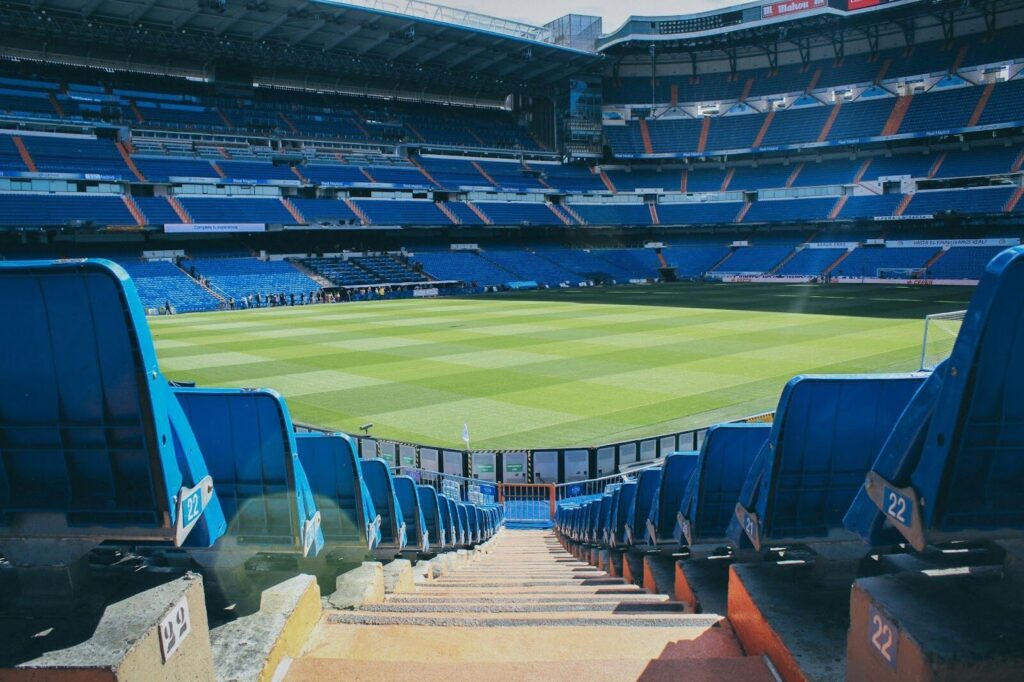
The transfer market is full of rumors and optimism, and it often brings stars from the most unlikely places in the world. People were talking about “Alphonso Davies” around Real Madrid’s Santiago Bernabéu stadium for what seemed like forever. This made his skill and reputation even more clear. This speculation about a possible move to Real Madrid ended when he signed a new contract with Bayern Munich on February 4, 2025. This ended the transfer saga. Davies’ story is an interesting illustration of how a Canadian may become a world-famous football player. Additionally, it demonstrates how the internet is influencing sports. How did a player from a country known mostly for ice hockey get the attention of Europe’s leading teams and fans all around the world?
A New Fandom Without Borders
The world of sports fandom has changed a lot. It used to be a local, frequently tangible thing, but now it’s a huge digital, worldwide thing. The days of being loyal just to the hometown club, which was fueled by going to games and reading local newspapers, are over. Now, people are excited about teams from all over the world. Streaming services, social media, and fast news updates have made distance between people unimportant. Fans worldwide, including those in Vancouver, can follow Real Madrid’s every match in real-time and pass as closely and readily as they do the Toronto Maple Leafs. Davies and other sportsmen have become renowned all around the world and built a dedicated following almost overnight, even among people who don’t ordinarily watch sports in their own nation. This is because the internet gives people freedom.
Beyond the Final Whistle
Today’s sports fans do a lot more than just watch the 90 minutes of action. Fans nowadays are active players and co-creators in the stories that their favorite sports tell. The final whistle doesn’t mean the experience is over anymore; it’s just a break before the following wave of engagement. There are many tactical arguments on internet forums, social media feeds are full of quick responses and well-made highlight clips, and fantasy leagues convert casual fans into strategic managers. This higher degree of engagement has become an integral part of the sport itself, creating a dynamic, involved community that loves the game and stays in touch.
The Digital Ecosystem of Engagement
A growing digital ecosystem supports this sports fandom transition. Fans may now connect with their favorite clubs and players beyond matchdays. Fantasy football platforms convert ordinary fans into tactical managers, while esports and competitive gaming blend participating and watching. Highlights, replays, and tactical insights are one click away on streaming platforms.

Digital entertainment and the contemporary enthusiasm for sports go hand in hand. Supporters now have a different way to be a part of the culture of the game thanks to the advent of new interactive platforms. This involves a stronger link between sports teams and the internet gaming sector, including the Canadian online casino market. A lot of people talk about this part of the sports business in the modern digital world. Many platforms and teams work together to give fans new ways to interact and compete. All of these things are part of the digital entertainment world that surrounds modern sports. This means that there is always a new method to get involved in the game culture after the whistle.
The Star as a Storyteller
Alphonso Davies is a great example of a modern athlete who is both a global brand and a storyteller. His social media accounts let him freely communicate with fans worldwide. Davies shows his personality, journey, and life off the field in addition to his speed and defense. This real interaction bypasses traditional media managers, fostering a close connection that transcends language and cultural boundaries. Modern sportsmen are captivating media personalities who contribute to the sport’s ever-changing storyline.
The Canadian Paradox and a Global Future
The ascent of Alphonso Davies is an interesting contradiction in Canadian sports culture. Canada is at the vanguard of this digital revolution in sports fandom, even though it is strongly established in traditions surrounding ice hockey and other national pleasures. Davies’s rise from a refugee camp to European football’s elite, made easier by technology, illustrates this change. His story exemplifies how modern athletics celebrates heroes from diverse backgrounds, beyond athletic prowess alone. Global football will uncover and develop talent from across the globe as the internet shrinks the earth. This will make the beautiful game even more exciting and connected in the future.












